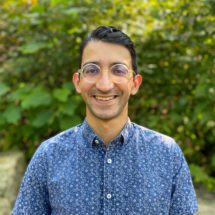Clemson University to host 2023 National Quantum Technology Forum
Quantum technology has the potential to revolutionize the world — from enabling drug and vaccine discovery in days instead of years and better internal imaging simulations that detect early stages of diseases to improving national security and solving logistics and supply chain disruptions.
Leaders in quantum technology will gather at Clemson University Clyde V. Madren Center on April 14-15 for the National Quantum Technology Forum. The forum is a joint effort between the University’s Department of Physics and Astronomy and Department of Electrical and Computer Engineering.

“Quantum technologies are important because the computers we’re using today, even server farms and massive supercomputers, are limited in terms of computational powers. A lot of the problems our civilization and nation face are complicated problems with multiple variables,” said Kasra Sardashti, an assistant professor in the Clemson Department of Physics and Astronomy and lead organizer of the forum. The other co-organizer is Lin Zhu, an electrical and computer engineering professor.
Unlike conventional computers that store information in binary form (1s and 0s), quantum computers exploit the strange properties of quantum physics to store information in multiple forms known as qubits, Sardashti said. By leveraging two key phenomena — quantum superposition and entanglement — quantum computers can explore multiple solution pathways simultaneously, allowing them to solve problems that would take a traditional computer too long to calculate.
Yole Development, an international technology market research firm, estimates the quantum market will be worth $2.1 billion in 2030, with the quantum computing segment reaching more than $4 billion by 2035.
Showcasing innovation
The conference provides the opportunity for academic, government and industrial researchers from across the country to showcase their innovations in the fields of solid-state quantum computing, sensing and communication.
Undergraduate and graduate students and early-career researchers are encouraged to attend the event, which was launched last year as the South Carolina Quantum Technology Forum.
The forum will offer a combination of technical talks and more introductory talks about what quantum technology is all about, the direction of the field and the implications for the industry.
“The forum will be good for people who want to learn what quantum is all about or STEM students and professionals who want to get into this field. It will also be good for those who are already working in the field,” Sardashti said. “Quantum is an emerging field, just like nanotechnology was 20 years ago.”
Some of the keynote speakers for this year’s forum include:
- U.S. Rep. Cory Mills (R-Fla.), a retired lieutenant colonel in the U.S. Air Force who serves on the House Committees on Armed Services and Foreign Affairs.
- Vayl Oxford, strategic adviser and director for global security strategy at the Savannah River National Laboratory. He previously headed the Defense Threat Reduction Agency, a combat support agency within the U.S. Department of Defense for countering weapons of mass destruction.
- Robert Cava, a solid-state chemist at Princeton University, where he is the Russell Wellman Moore Professor of Chemistry. He is a member of the National Academy of Sciences.
- Christopher Richardson, Laboratory for Physical Sciences, who worked on the Quantum Information Science and Technology Workforce Development National Strategic Plan.
Registration ranges from $25 for undergraduate students to $200 for those in the industry. The deadline to register is April 13.
For more information about NQTF 2023, visit nqtf.us or email the organizing team at ngtf.organizers@gmail.com.


